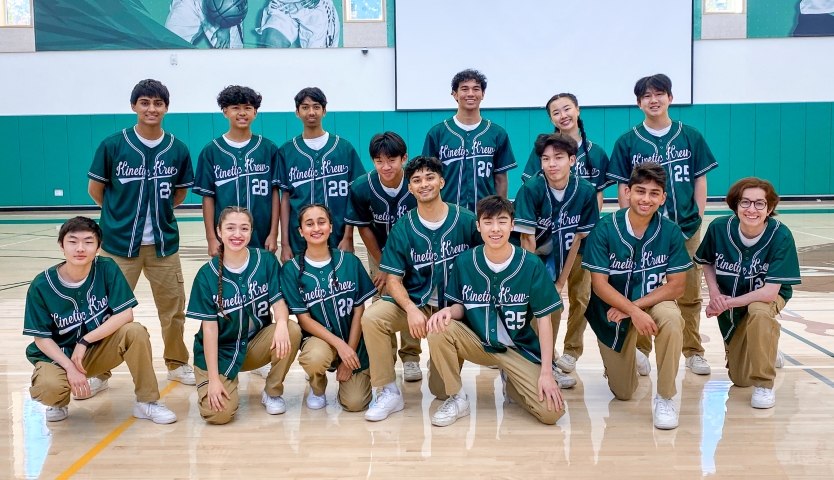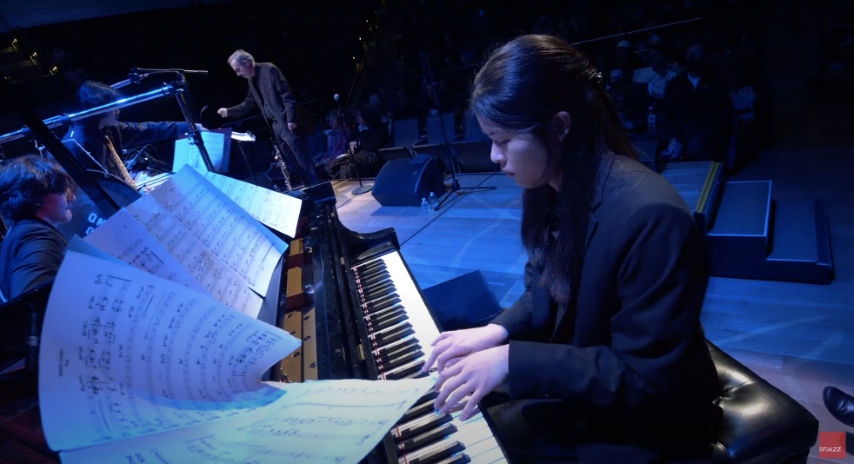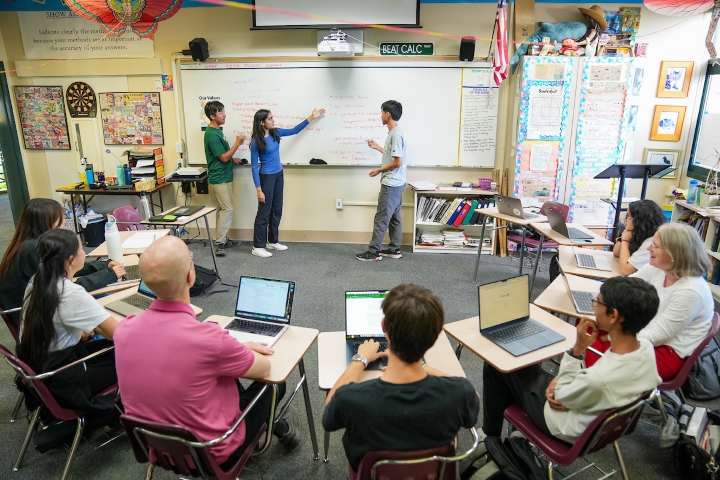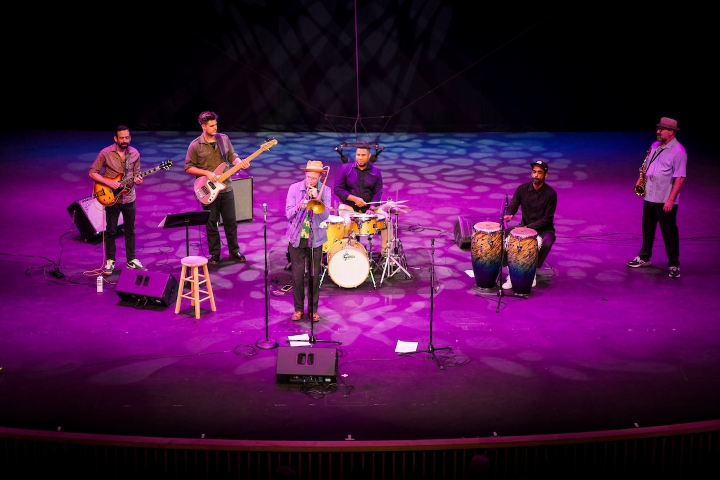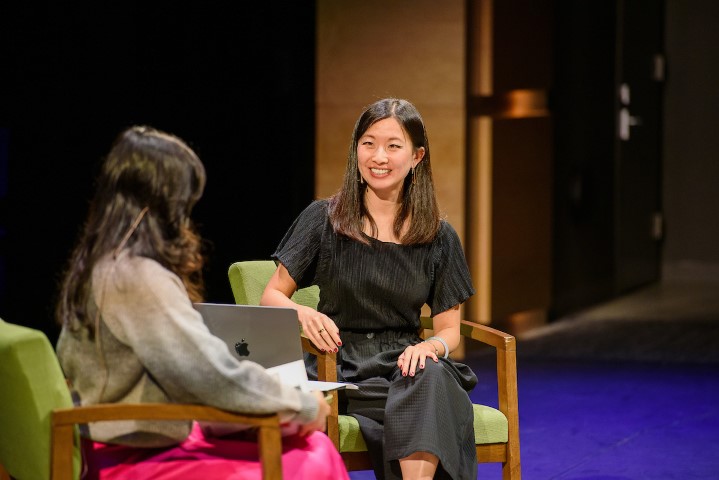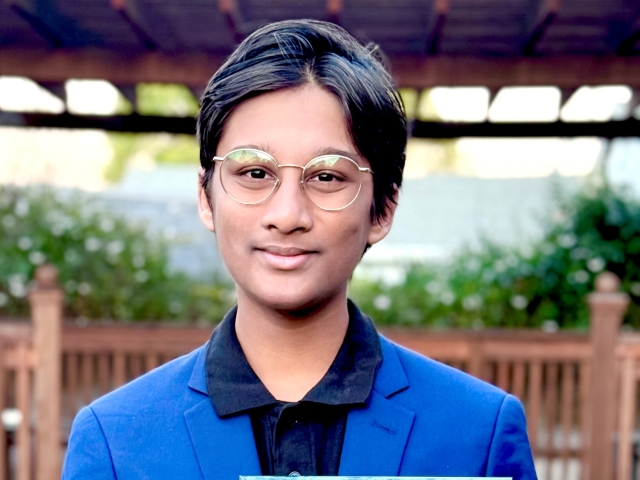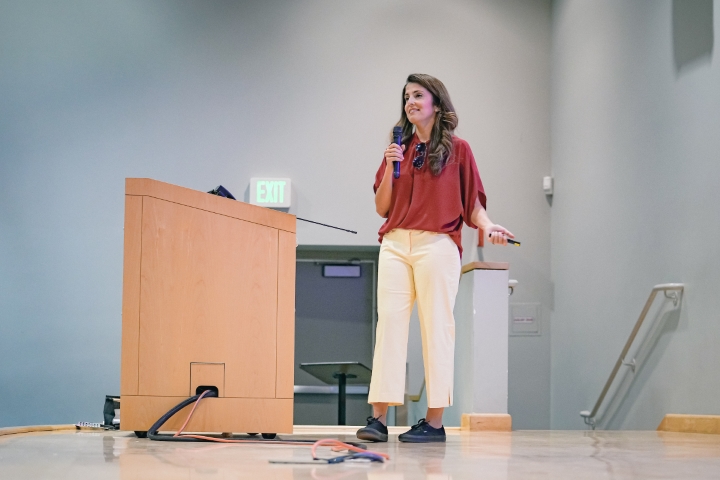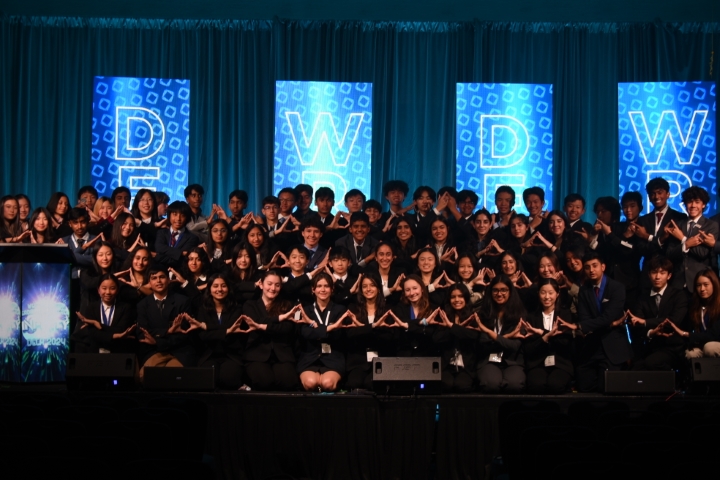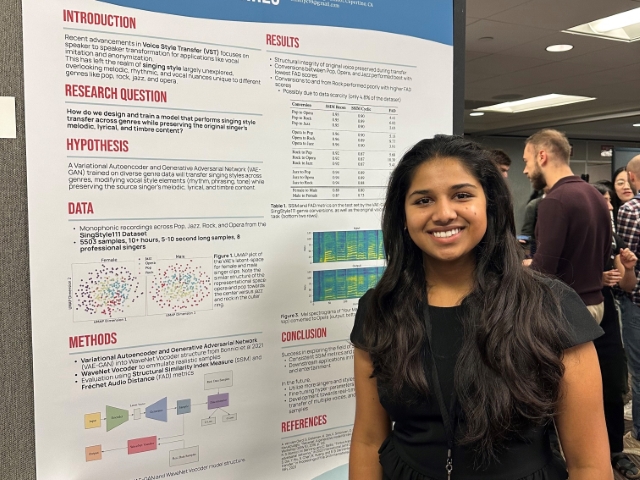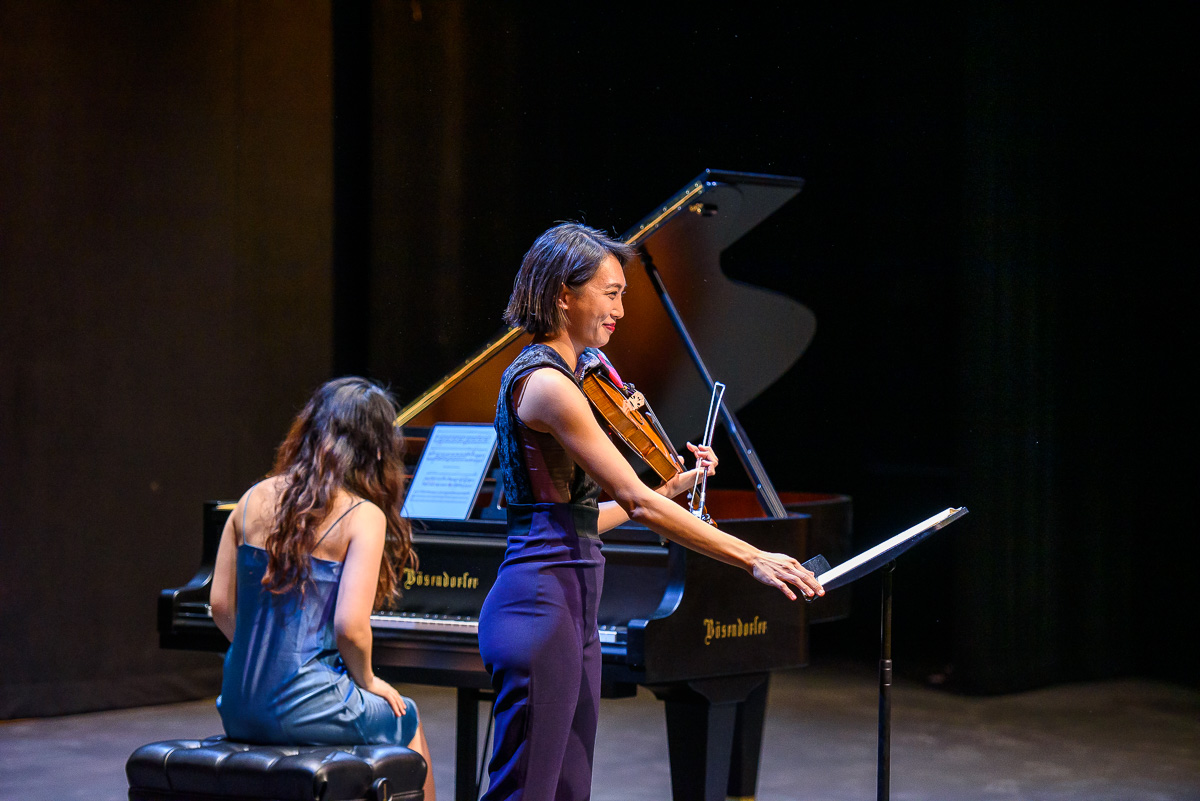Last month, Harker upper school dance groups Kinetic Krew and the Harker Dance Company took first place in three categories in the United Spirit Association’s Dance Regional II contest.
alumni-express
Senior jazz pianist wins YoungArts Award With Distinction
Senior Elena Weng was recently selected as a winner of a YoungArts Award With Distinction for her work as a jazz pianist, one of just nine student jazz instrumentalists chosen nationwide.
Harker Magazine: A Matter of Honor
See this excerpt from Harker Magazine’s feature on the Honor Council, and read the full version online at issuu!
Harker Magazine: 15 Seasons of the Harker Concert Series
Now in its 15th season, the Harker Concert Series has offered unique value to students, granting them access to some of the world’s greatest musicians, be they widely celebrated veterans or up-and-coming acts.
Connie Zheng discusses processes, seeds and maps at Harker Speaker Series
Oakland-based artist Connie Zheng gave attendees an in-depth look into her processes and the experiences that inform them at the Harker Speaker Series.
Eighth grader wins singing contest, will perform at Carnegie Hall
Eighth grader Ushnish Chatterjee recently took first place in American Protégé’s We Sing Pop! singing competition.
Harker Aquila: Students practice empathy and media literacy during Day of Understanding
The Day of Understanding, held at the upper school on Nov. 8, led a group of 60 students through activities designed to promote media literacy and cross-cultural empathy.
Harker DECA spends productive weekend at Western region conference
From Nov. 7-10, over 70 Harker students attended DECA’s Western Region Leadership Conference.
Senior presents at music information conference
enior Saanvi Bhargava recently presented at the International Society for Music Information Retrieval’s (ISMIR) annual conference.
Violinist Nancy Zhou packs Patil Theater for Harker Concert Series performance
Violinist Nancy Zhou played to a packed Patil Theater on Friday night, joined by San Francisco-born Serena Wang, a performer with major orchestras throughout China and the United States.
